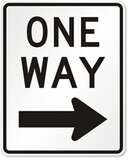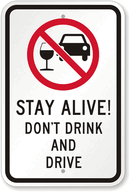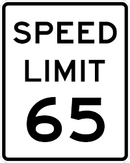It's an authority dictating when people can't do something, and thus makes a good comparator everyone can immediately understand. There is also the sinister principle that if the government is responsible for people, it has the right to exercise control over them to discharge that responsibility. It makes no sense to hold someone responsible for what they have no control over.
You do know that those "Buckle up" signs are targeted at the people NOT wearing seatbelts... right?
They remind us that as far as the law is concerned, we don't have a choice.
Yes, I do be believe that there are situations where the government has a responsibility to protect people who are not competent enough to protect themselves.
Working in an inpatient mental health facility, I see this a lot; people committed on short-term court orders on the grounds that they have some sort of serious mental disturbance putting them &/or others at risk for harm which can't be reasonably addressed by a less restrictive alternative.
In doing so, they also protect other people from those people's lack of smarts. Seatbelts are a pretty good example.
A good example for different reasons. In this case, it's most likely this other driver is not insufficiently competent to protect himself.
1.) If he's driving he's probably not mentally retarded (they've started calling it Intellectual Disability now) or demented (e.g.: Alzheimer's Disease) - so it's not a lack of smarts.
2.) Nothing in the example given suggests he's psychotic or manic - so he's not 'crazy' (irrational).
This is simply someone who, although he has the mental capability and knowledge to make wiser decisions you agree with, makes an informed decision to not wear the seat belt, because he's indifferent or, if he's thought it through, prioritizes the certain added convenience of not wearing it over the highly unlikely but potentially grievous added harm that may ensue from not doing so.
It is the nature of liberty that if you give it to free-willed competent adult citizens, some of them will use it to make some foolish choices. Drinking too much. Staying in abusive relationships. Driving without a seat belt, or a motor cycle without a helmet. Buy large sugary soft drinks at restaurants in New York City. Eat too much fat & not exercise enough. Put too much salt on their food. Smoke cigarettes. There is a price to be paid for liberty; higher highway death rates, obesity rates, shorter average life spans, etc...
According to a t.v. commercial I've heard a number of times, smoking kills 1 in 4 smokers. Sounds a lot more dangerous than not wearing a seat belt. I don't smoke or drink and I wear seat belts, but I'm fat and out of shape. The old saying 'People in glass houses shouldn't throw stones' comes to mind.
The broader relevance to this issue is, for reasons having to do with practical access to desired dive sites (e.g.: coral reefs) and liability concerns of dive op.s in our litigious society, there is a de facto dive industry culture that in effect excludes some people from diving based on medical conditions. A well-off diver could buy his own tanks, compressor and boat, move to southern Florida and dive without going through an op., I suppose, but probably at much higher risk.
Some people with these conditions may not agree with this exclusion. They have an option to 'do something about it.' Unfortunately, sometimes that something is lying.
Richard.








